[Psychology plays a key role in smart game design, and Gamasutra contributor Jamie Madigan explores this principle by discussing how a player's confidence in making predictions affects their overall behavior.] Imagine that some wealthy lunatic comes to you with an offer to choose between the following gambles in order to win five bucks: Option 1: A stock is selected at random from the Wall Street Journal. You guess whether it will go up or down tomorrow. If you're right, you win $5. Option 2: A stock is selected at random from the Wall Street Journal. You guess whether it went up or down yesterday. No peeking! If you're right, you win $5. Would you have a preference? You know they both offer equal chances of winning, right? Well, if you were like 67 percent of subjects described in a 1991 paper by Chip Heath and Amos Tversky published in the Journal of Risk And Uncertainty you would pick Option 1. The reason has to do with what the authors call "the competence hypothesis." In short, they say "people prefer to bet in a context where they consider themselves knowledgeable or competent than a in a context where they feel ignorant or uninformed." If you know nothing about a situation, the outcome of any predictions you make -- right or wrong -- can be attributed to dumb luck. But if you're supposedly an expert, you stand not to gain $5, but also self-esteem and bragging rights. Sure, if you're wrong your ego suffers, but that's only if you're wrong. Ignorance, on the other hand, is always a liability -- blind guesses are just lucky if they turn out to be right and only serve to highlight your ignorance if you're wrong. So people prefer to make bets on something they think they know about and hesitate to make them on something they're ignorant about. Right, I know. You're out there saying "Well, duh!" so loud I can hear you all the way up here in my ivory tower. Of course people prefer to make bets about things they know more about. But that's not quite the point of this article and not quite what was happening in the stock betting scenario described above. It turns out that this bias towards betting in line with our expertise can result in some irrational behavior when we realize that something is knowable even though we don't know it. In other words, if something is knowable, like whether or not a stock went up yesterday, but not known to us at the moment, we automatically shy away from that bet. It's habit and a bias. Just not knowing something that we feel we could know triggers feelings of lowered competence, which our brains use as a mental shortcut for identifying bad risks. In another experiment, half the subjects bet on the outcome of a simple die roll before it was cast, and half bet on the outcome after it was cast (but before they could see it). Those who were making bets prior to the roll were more confident of their predictions than those who were betting on an unknown roll that had already taken place. They were also more willing to bet money on the outcome (Wait, were these psychologists running a craps game under the guise of scientific research? Man, I bet they totally were.) Same thing. As Heath and Tversky say, "In prediction, only the future can prove you wrong; in postdiction, you could be wrong right now."  So, what does this mean for video games? For one, I've been playing the iOS game Draw Something a lot lately. It's a drawing game where you're given a choice of words in ascending difficulty (e.g., "box," "airport," "Mad Men") and then you have to pick one to draw on the iPad or iPhone using your finger or a stylus. The other player, though the magic of the internet, sees your drawing but not the word it's based on -- that they have to guess from your work. The thing is, though, that they don't just see the completed drawing. They see a recording of you going through the process of drawing it. Sometimes this is hilarious and embarrassing such as I screw up something simple like "pancakes" but generally it gives the game a much more "live" feeling and lets you guess at something before it's done. Also, thanks to our bias towards betting on future events as opposed to past ones, I suspect that the "live replay" feature in Draw Something makes us more confident in our ability to guess a work in progress. Even though it's technically already happened in the past. What's more, I think this bias informs ways that developers can design rewards or the sale of items in games. Imagine a player opening a treasure chest to randomly get either an awesome or lousy piece of loot as a reward for clearing a dungeon. Alternatively, imagine a smarmy NPC saying "I put a piece of phat loot in each of these two chests. One is awesome, one sucks. Pick a chest." Which would most players prefer, even though their chances of getting the good stuff are equal? The first, because it offers the illusion of betting on an outcome that hasn't happened yet, and thus doesn't trigger the bias described above. As a final (slightly evil) example of how to hack this bias into a game system, consider the supply crates in multiplayer Mass Effect 3, for example. These are crates of essential goodies that players can purchase for either in-game funds or real-word currency. Opening a crate is like spinning a slot machine in that the contents are random within certain parameters -- sometimes they're just ammo packs and an upgrade for a gun you never use, and sometimes they unlock new character classes and outfit you with ridiculously powerful weapons.
So, what does this mean for video games? For one, I've been playing the iOS game Draw Something a lot lately. It's a drawing game where you're given a choice of words in ascending difficulty (e.g., "box," "airport," "Mad Men") and then you have to pick one to draw on the iPad or iPhone using your finger or a stylus. The other player, though the magic of the internet, sees your drawing but not the word it's based on -- that they have to guess from your work. The thing is, though, that they don't just see the completed drawing. They see a recording of you going through the process of drawing it. Sometimes this is hilarious and embarrassing such as I screw up something simple like "pancakes" but generally it gives the game a much more "live" feeling and lets you guess at something before it's done. Also, thanks to our bias towards betting on future events as opposed to past ones, I suspect that the "live replay" feature in Draw Something makes us more confident in our ability to guess a work in progress. Even though it's technically already happened in the past. What's more, I think this bias informs ways that developers can design rewards or the sale of items in games. Imagine a player opening a treasure chest to randomly get either an awesome or lousy piece of loot as a reward for clearing a dungeon. Alternatively, imagine a smarmy NPC saying "I put a piece of phat loot in each of these two chests. One is awesome, one sucks. Pick a chest." Which would most players prefer, even though their chances of getting the good stuff are equal? The first, because it offers the illusion of betting on an outcome that hasn't happened yet, and thus doesn't trigger the bias described above. As a final (slightly evil) example of how to hack this bias into a game system, consider the supply crates in multiplayer Mass Effect 3, for example. These are crates of essential goodies that players can purchase for either in-game funds or real-word currency. Opening a crate is like spinning a slot machine in that the contents are random within certain parameters -- sometimes they're just ammo packs and an upgrade for a gun you never use, and sometimes they unlock new character classes and outfit you with ridiculously powerful weapons.  Think about if, when you select a crate for purchase, the confirmation button read something like "Load this crate with a random X, Y, and Z and purchase." Would giving players the illusion of betting on the contents of that crate before they are determined result in more purchases? I think it probably would. Thanks a lot, brain. [Jamie Madigan examines the overlap of psychology and video games at PsychologyOfGames.com. He can be reached at jamie@psychologyofgames.com.] References Heath, C. and Tversky, A. (1991). Preference and Belief: Ambiguity and Competence in Choice Under Uncertainty. Journal of Risk and Uncertainty, 4, 5-28. Rothbart, M. and Snyder, M. (1970). Confidence in the Prediction and Postdiction of an Uncertain Outcome. Canadian Journal of Behavioral Science 2(1), 38-43.
Think about if, when you select a crate for purchase, the confirmation button read something like "Load this crate with a random X, Y, and Z and purchase." Would giving players the illusion of betting on the contents of that crate before they are determined result in more purchases? I think it probably would. Thanks a lot, brain. [Jamie Madigan examines the overlap of psychology and video games at PsychologyOfGames.com. He can be reached at jamie@psychologyofgames.com.] References Heath, C. and Tversky, A. (1991). Preference and Belief: Ambiguity and Competence in Choice Under Uncertainty. Journal of Risk and Uncertainty, 4, 5-28. Rothbart, M. and Snyder, M. (1970). Confidence in the Prediction and Postdiction of an Uncertain Outcome. Canadian Journal of Behavioral Science 2(1), 38-43.
Opinion: Draw something uncertain
May 11, 2012

Tags:
2012
Subscribe to our newsletter
About JikGuard.com
JikGuard.com, a high-tech security service provider focusing on game protection and anti-cheat, is committed to helping game companies solve the problem of cheats and hacks, and providing deeply integrated encryption protection solutions for games.
Top
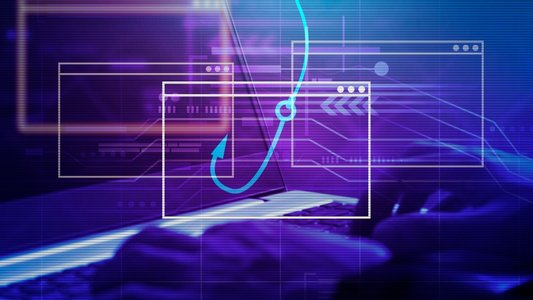
New Phishing Campaign Abuses ConnectWise ScreenConnect to Take Over Devices
Aug. 27, 2025

New Data Theft Campaign Targets Salesforce via Salesloft App
Aug. 27, 2025
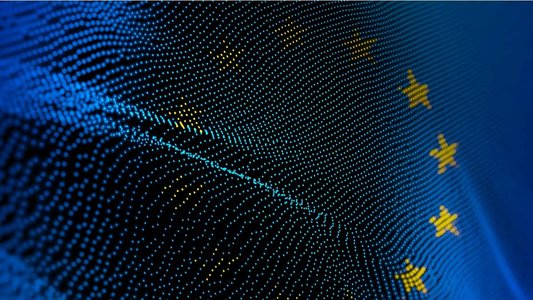
ENISA to Coordinate €36m EU-Wide Incident Response Scheme
Aug. 27, 2025

Citrix Patches Three NetScaler Zero Days as One Sees Active Exploitation
Aug. 27, 2025

ShadowSilk Campaign Targets Central Asian Governments
Aug. 27, 2025
Recent

New Phishing Campaign Abuses ConnectWise ScreenConnect to Take Over Devices
Aug. 27, 2025

New Data Theft Campaign Targets Salesforce via Salesloft App
Aug. 27, 2025

ENISA to Coordinate €36m EU-Wide Incident Response Scheme
Aug. 27, 2025

Citrix Patches Three NetScaler Zero Days as One Sees Active Exploitation
Aug. 27, 2025

ShadowSilk Campaign Targets Central Asian Governments
Aug. 27, 2025

Nevada “Network Security Incident” Shuts Down State Offices and Services
Aug. 27, 2025
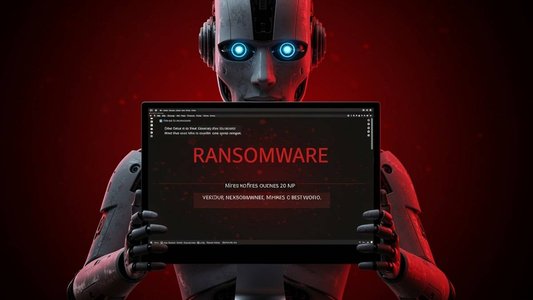
Researchers Discover First Reported AI-Powered Ransomware
Aug. 27, 2025
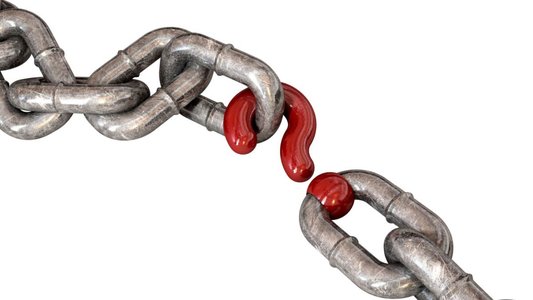
CISA Strengthens Software Procurement Security With New Tool
Aug. 27, 2025
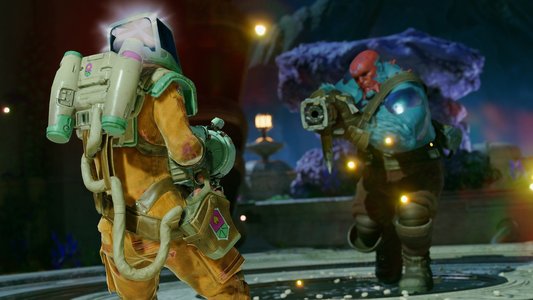
PlayStation CEO says firm is implementing measures to minimise impact of cancellations
Aug. 27, 2025

Ubisoft CEO Yves Guillemot summoned to appear before French court
Aug. 27, 2025
Blog

x64dbg Dynamic Debugging Detection Solution
Feb. 3, 2026

How to Detect Game Direct-Install Hacks
Jan. 26, 2026

How to Detect SRPatch Signature Verification Bypass Tools
Jan. 19, 2026

How games prevent communication data tampering
Jan. 13, 2026

Unity Mini-Game Code Encryption Feature Now Available
Jan. 9, 2026

Magisk Cheat Tool Detection Solution
Dec. 30, 2025

Game Risk Environment Detection Solution
Dec. 25, 2025

Japan Allows Side-Loading on iPhones, Game security faces new challenges
Dec. 23, 2025

iOS Developer Signature Bypass Solution
Dec. 18, 2025

JikGuard Game Protection Product FAQ
Dec. 16, 2025
Random

357,000 visitors attended Gamescom 2025
Aug. 26, 2025

Lightspeed Japan opens second studio in Osaka
Aug. 27, 2025
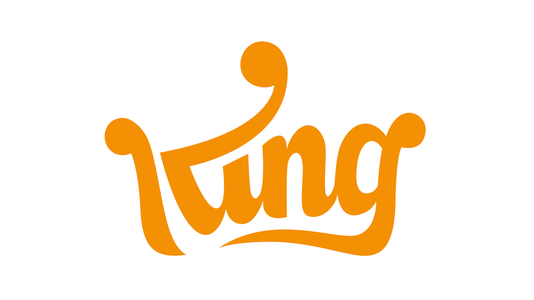
"Performance didn't matter" in King layoffs, sources claim in new report
Aug. 27, 2025

Ubisoft CEO Yves Guillemot summoned to appear before French court
Aug. 27, 2025

Microsoft to Make All Products Quantum Safe by 2033
Aug. 22, 2025

US: Maryland Confirms Cyber Incident Affecting State Transport Systems
Aug. 26, 2025

Citrix Patches Three NetScaler Zero Days as One Sees Active Exploitation
Aug. 27, 2025

Researchers Discover First Reported AI-Powered Ransomware
Aug. 27, 2025

Resident Evil Requiem wins big at Gamescom Awards 2025
Aug. 26, 2025

Chinese Developer Jailed for Deploying Malicious Code at US Company
Aug. 25, 2025
Most Views

How Games Detect GameGuardian
March 17, 2025

Explanation of Game Anti-Cheat Solutions
March 17, 2025

Cheat Engine Modifier Detection Solutions
March 18, 2025

Explanation of Unity Engine Encryption Solutions
March 17, 2025

How to Anti Hack in Client-Side Games
May 21, 2025

Cocos Engine Encryption Solution
April 8, 2025

How Games Anti-Debugging
April 15, 2025

Cloud Phone Detection Solution for Gaming
May 21, 2025

How Games Detect Frida
March 25, 2025

How Games Detect PlayCover
March 26, 2025


